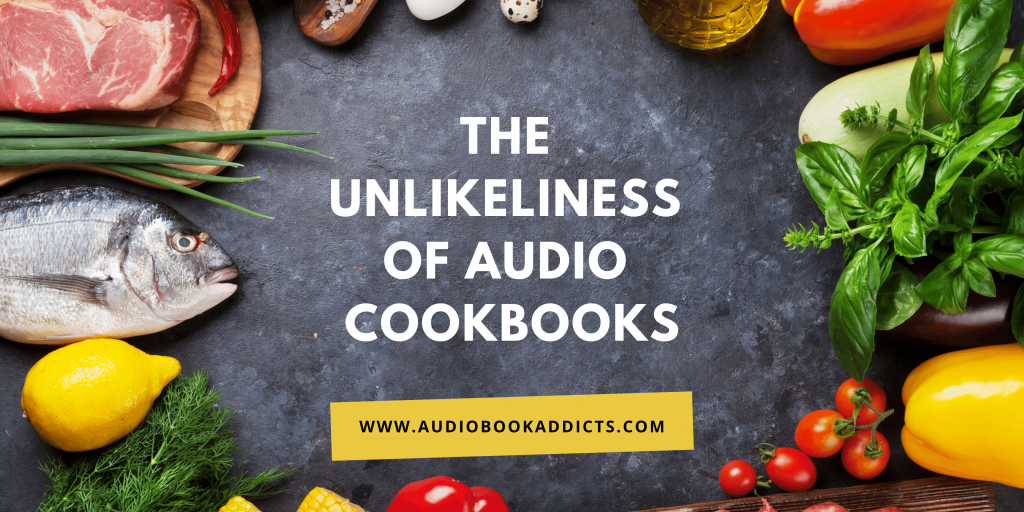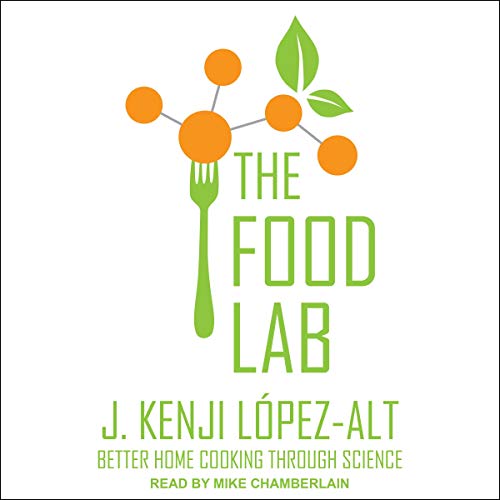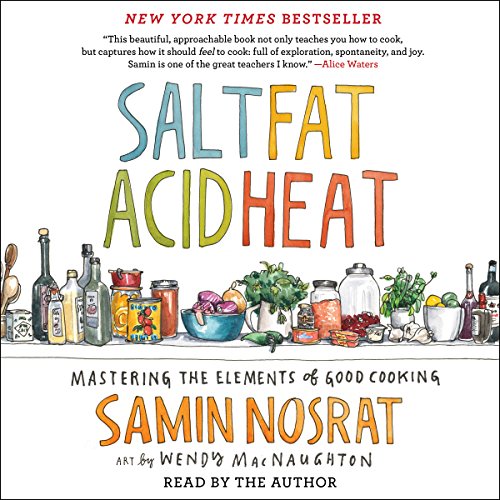
The audiobook format has been used in some interesting and novel ways, but the cookbook stands out as the most unlikely.
A few months ago I was scrolling through the trove of books Audible thought I’d be interested in when I saw The Food Lab by J. Kenji Lopez-Alt. At more than twenty hours long, it piqued my interest but I scrolled past because that’s an awfully long time to listen to someone verbally dish out recipes. How would that even work?

Shortly after that, I was helping a friend plan a meal, away from my physical collection of cookbooks. I wanted to introduce her to the lovely and visual Salt, Fat, Acid, Heat by Samin Nosrat. I pulled up the Libby app to see if it was available from my library and that’s where I saw it – the audiobook version. I filed that knowledge away and continued on with the task at hand, showing my friend the eBook.
Fast-forward to a few weeks ago when I had an Audible credit to use and honestly, the intrigue got to me – I bought The Food Lab. Is ‘audio cookbook’ a new trend? Was it going to be twenty hours of ingredient listings? Once I got into it, what I found was a really interesting deep-dive into the science of food and no awkward recipes.
The narration covered the author’s extensive writing on the ‘why’s and ‘how’s of cooking. Admittedly, listening to this felt a bit like listening to an interesting textbook. I’ve had a copy of The Food Lab on my bookshelf for a long time and I’ve skimmed through the chapters without taking the time to digest it – its size and weight are intimidating. But listening while getting ready in the morning and while I ate my lunch allowed me to enjoy what was being said without feeling like I was studying for a big exam.
Naturally, my next stop was Salt, Fat, Acid, Heat. This audiobook takes a similar approach to translating the physical book to audio but this one was read by the author, which really makes you feel like you’re getting a masterclass from this great chef. I even found myself taking notes about how to develop my palate for salting food. This is homework I can enjoy! One of the things that makes the physical version of Salt, Fat, Acid, Heat so special is the illustrations which I did miss, however, I enjoyed listening to Nosrat’s teachings.

But there is the notable issue of recipes. They are cookbooks, after all. In the case of The Food Lab, there is an included PDF on Audible that provides all of the recipes from the physical book – so you can still cook through the book. Salt, Fat, Acid, Heat apparently includes a PDF (I couldn’t access it through Libby) but the author says at the end of the audiobook that the recipes are only available in the print version so that is a bit disappointing.
Overall, I was pleasantly surprised at the experience of listening to a cookbook. If you listen to audiobooks to be swept up in a story this is probably not a great option for you. However, if you’re an avid consumer of non-fiction and want to dive deeper into cooking, these are great options. You get into a ‘cheffy’ headspace and start thinking about food differently and I have found that it does translate into your cooking afterwards.
But to answer my earlier question – I don’t think audio cookbooks will be a big, new trend. The reason this format works in these two instances is because they are in-depth treatises into the science of cooking. Your standard is about 100 ‘headnote – ingredients – method’ wouldn’t engage or translate to this format. So while The Food Lab and Salt, Fat, Acid, Heat are worthy listens I wouldn’t expect to see cookbooks take over the market.
